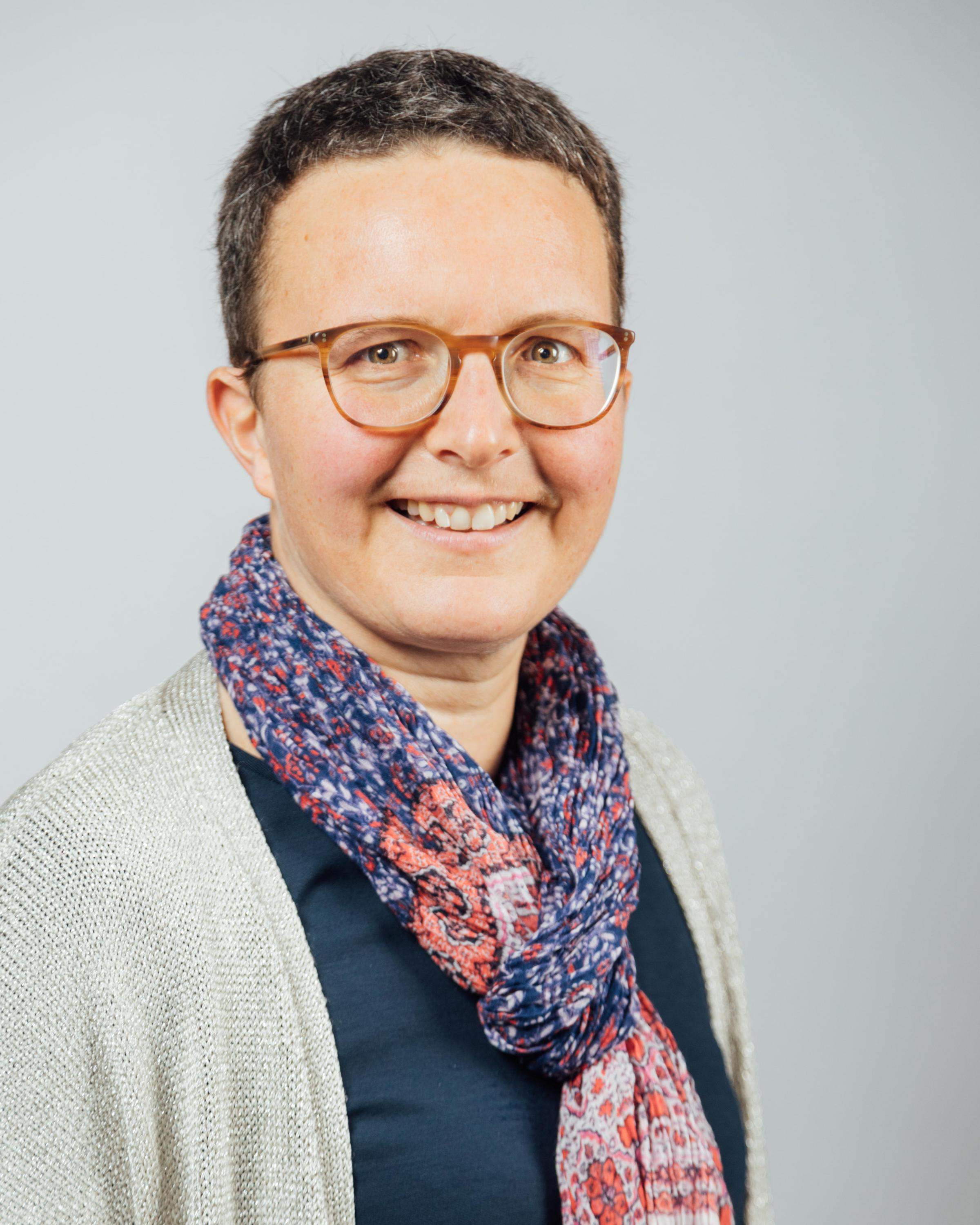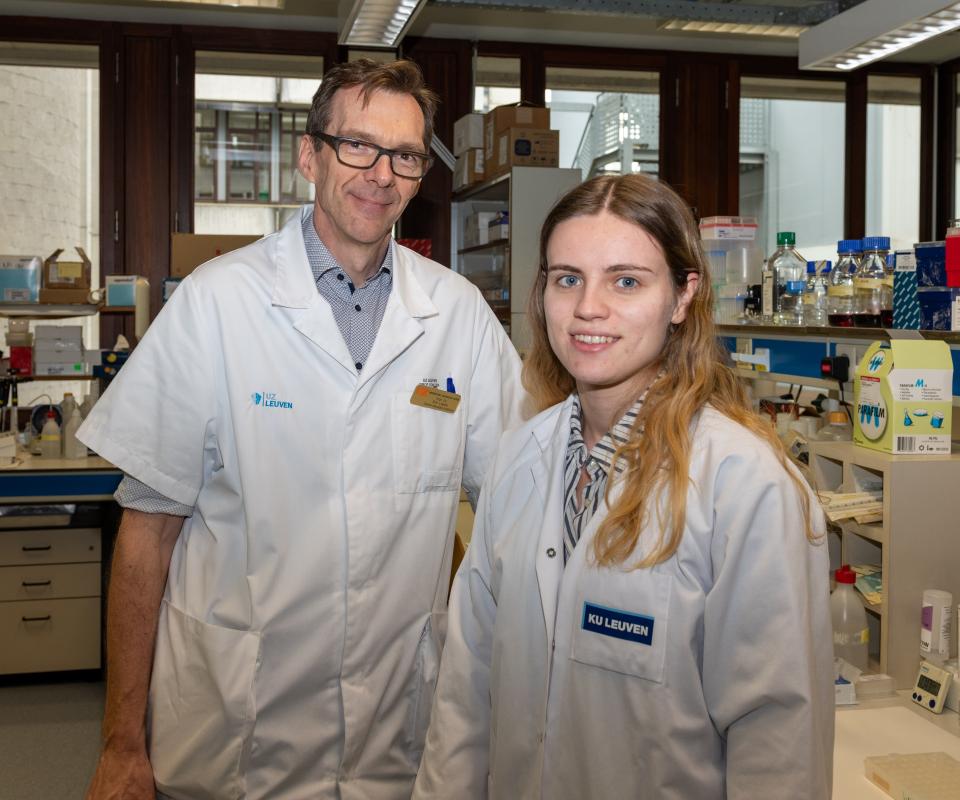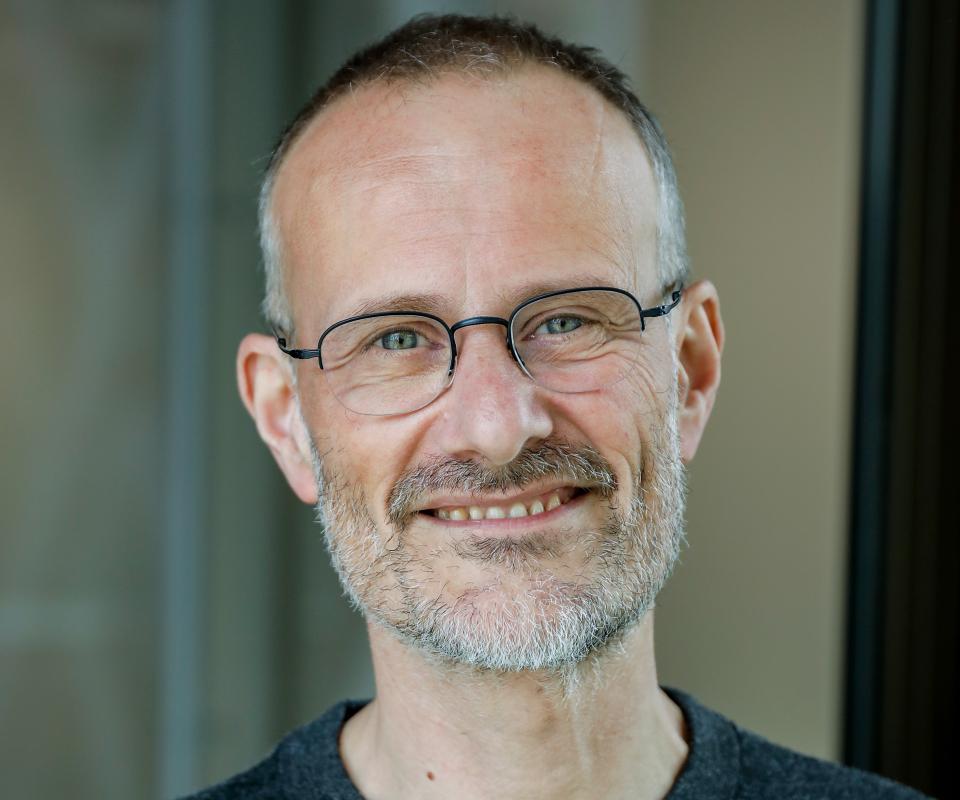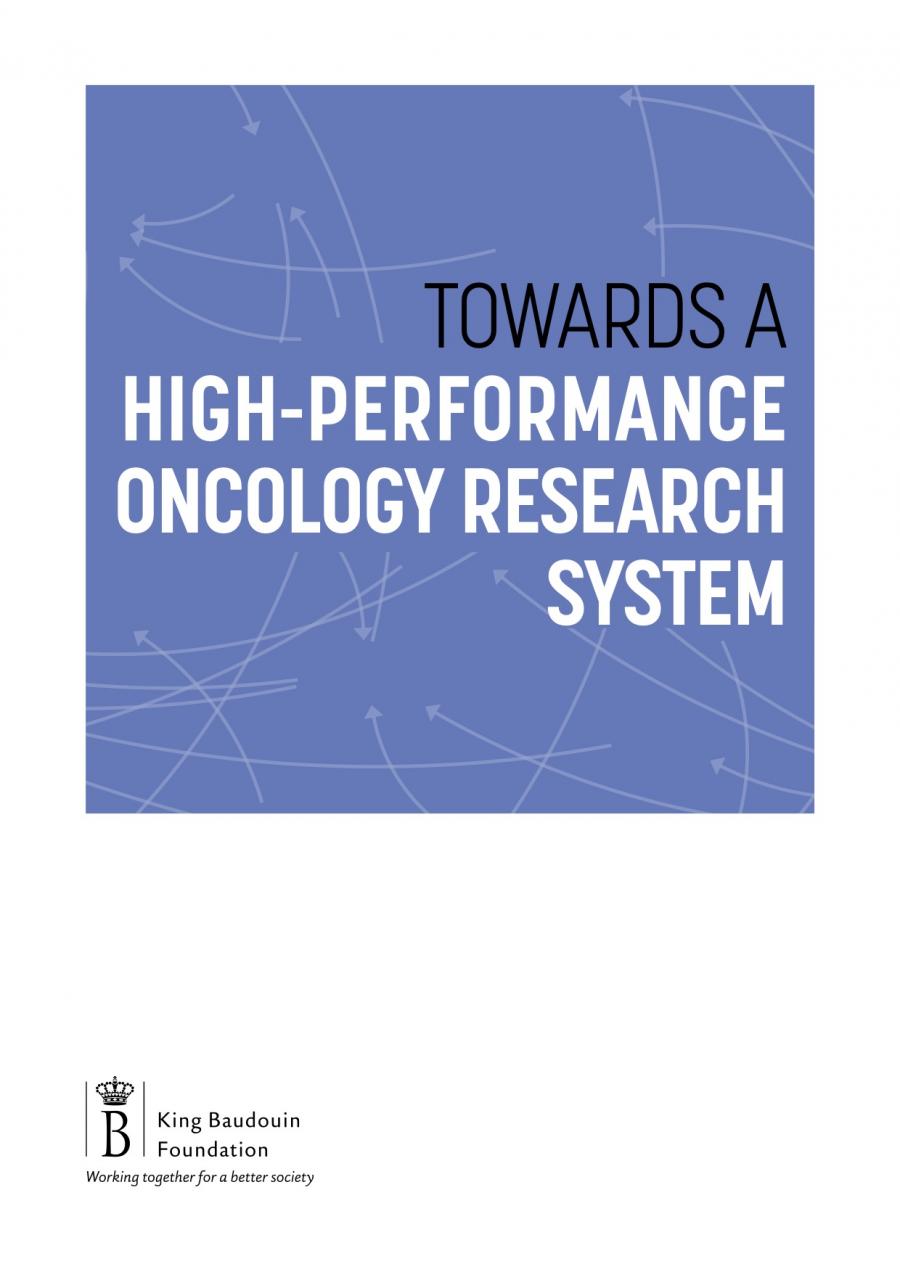
Pancreatic cancer: gradually untangling a complex knot
“In families where there are more cases of pancreatic cancer, we are also seeing an association with colon and breast cancer.”
Pancreatic cancer: the words have fearsome overtones. Usually discovered much too late, the disease can rarely be cured. Prof. Kathleen Claes (UGent) is conducting research into ways of diagnosing pancreatic cancer more quickly in order to provide treatment with an improved chance of success. She has received financial support for her research from the Maaike Lars Trees Fund, the Anhaive Cancer Fund and the Drieghe-Miller Fund, three medical research funds managed by the King Baudouin Foundation.
Steve Jobs, Luciano Pavarotti, Patrick Swayze and Ruth Bader Ginsberg have had it. Closer to home here in Belgium, we have seen former prime minister Jean-Luc Dehaene. Or singer Arno, who was fortunate enough to have an operation. Hundreds of less well-known Belgians have been in the same situation: every year some 2,000 people in this country are informed that they have pancreatic cancer. It is still a sombre verdict: only seven percent of patients are still alive after five years. If the cancer is discovered early and it is still possible to remove the tumour surgically, their chances of survival are higher. The symptoms of pancreatic cancer are so diverse, however: indigestion, back pain, tiredness, depressed mood... and so similar to those of other diseases, that this aggressive form of cancer is often not discovered until a late stage.
The genetic factor
Prof. Kathleen Claes at the ‘Lab Claes for Cancer Predisposition and Precision Oncology’ specialises in estimating a person’s predisposition or susceptibility to develop cancer, and genetic factors are never far away. “Genetic factors do play a part in cancer”, she explains, “but not to the same extent in all cancers. Twin studies showed high heritability in prostate or skin cancers, for example. In pancreatic cancer the effect is not as strong, but we do see a pattern of familial inheritance in five to ten percent of cases.”
Pancreatic cancer is a complex beast when it comes to genetics. Some diseases are largely monogenetic: this means that for most patients the cause is a mutation in one specific gene. In the case of pancreatic cancer there seems to be an interplay between genetic and other factors.
Correlations with other cancers
In her first study Dr. Claes found one piece of the genetic puzzle in families with at least two closely related or three less closely related individuals who have (had) pancreatic cancer. This additional insight brings us a step closer to finding better ways of predicting risk. “We had several groups of patients, some of them had family members with pancreatic or other cancers, and others did not. We looked at the extent to which they have more pathogenic variants in their genes (‘pathogenic’ means (potentially) causing disease). It turned out that they did: particularly in cases where several family members developed pancreatic cancer, we saw more of these hereditary pathogenic mutations. We saw that in families where not only pancreatic cancer but also breast, ovarian or colon cancer occur, the likelihood of a genetic mutation is higher.”
In these families you can therefore carry out predictive investigations but “so far there is no consensus on how to follow up those people. We do not yet have a 100% reliable method of finding pancreatic cancer by imaging. That means needle biopsies are still needed, and they are very invasive.” There is a continuing demand for further research in this area.
Reporters in the blood
At the same time Dr. Claes and her team are looking at other ways of tracing pancreatic cancer at an earlier stage. “We are hoping to find a marker, a reporter of the cancer in the blood. If you have cancer, there will be residual genetic material from dead cancer cells, or sometimes even a whole tumour cell, in your blood.”
Once again this is not an easy path to follow, because our blood is also full of all kinds of DNA from dead non-cancer cells. So one needs to look for residual DNA with more genetic abnormalities, which is typical of cancer cells. “We are finding this DNA, but only in people with advanced pancreatic cancer, not those at an early stage where an operation would still be possible.”
Technological progress
If you find that something is not as you thought, is that not also a significant result in scientific research? “Yes, I suppose it is”, laughs Kathleen Claes, “but we are still going to keep looking. Our research is quite recent, but the technology is evolving very fast, so there are already more sensitive techniques available. Previously we were only able to look for large pieces of missing or added DNA. Now we can look for smaller abnormalities. We have samples of tumour material and plasma for tens of patients, so we are going to repeat the process. We already know from other studies where the most frequent mutations in pancreatic cancer are located, so we will in first instance focus on these specific parts of the genome , using a sequencing technique that reads out the genome in a much finer way.”
Pancreatic cancer is a puzzle, but with no picture on the box to make it easier. We just have to see how the pieces fit together so that step by step we can create a little more hope of a cure for patients with pancreatic cancer.
Supporting medical research
The King Baudouin Foundation manages more than 50 Funds that provide financial resources for medical research, amounting to between 5 and 10 million euros each year. Prof. Kathleen Claes (UGent) has received financial support for her research in recent years from the Maaike Lars Trees Fund, the Anhaive Cancer Fund and the Drieghe-Miller Fund.
Other stories
Inspiring engagement!

From asthma research to better treatment for cystic fibrosis complications?
Health Research
"When we see a patient whose cystic fibrosis is deteriorating, it is often hard to identify the cause. There is a need for better diagnosis of allergic reactions to fungi."

New perspective on DNA variations leads to explanation for rare disease
Health Research
“We have shown that it is also worthwhile to look at the variants just before and just after genes.”
Other calls

Belgian Heart Fund - Clinical research in cardiology
Support for clinical research in cardiology.
Ongoing
Belgian Heart Fund - Multicentre Randomised Clinical Trials in cardiology
Support for multicentre randomised clinical trials in cardiology.
Ongoing
Belgian Heart Fund - Basic research in cardiology
Support for basic research in cardiology.
OngoingOther publications
Other philantrophy
Other press releases



